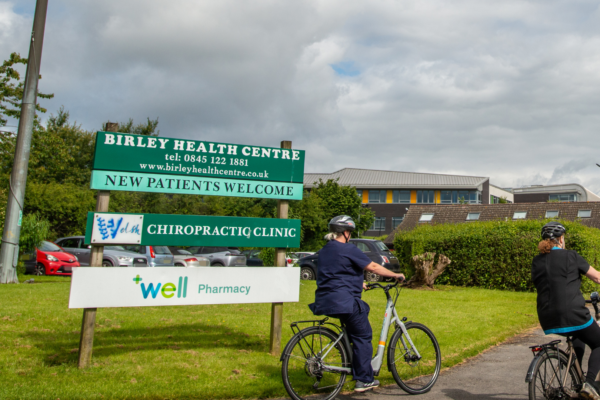Effects of air pollution on health
Air pollution is one of the biggest public health issues we face globally, and it’s getting worse.
Most of the world’s population live in places that exceed safe levels of air pollution, according to the World Health Organization’s (WHO) air quality guideline limits.
Invisible particles in the air we breathe enter our bloodstream, penetrating cells and organs in our bodies – including our lungs, heart and brain. This leads to millions suffering with diseases like asthma, respiratory diseases, strokes, heart attacks, cancer, and dementia, as well as low birth weight, stillbirths and miscarriages.
Babies, children, older people and those with existing health conditions are most severely affected by air contaminants. 9 out of 10 deaths attributed to outdoor air pollution are in low- and middle-income countries, according to the WHO.
Millions die from air pollution each year
8.1 million premature deaths annually are attributed to air pollution – that is more than tobacco smoking. It’s the second leading cause of premature deaths worldwide, primarily due to non-communicable diseases. Air pollution is also the second biggest cause of death of children under five, after malnutrition.
People who breathe polluted air have a greater risk of developing respiratory diseases, like asthma and chronic obstructive pulmonary disease (COPD). Poor air quality also contributes to the spread and severity of infectious diseases, like pneumonia and COVID-19.
Air pollution is one the most urgent and deadly global challenges. And the problem is getting worse. By 2060, air pollution could cause up to 9 million early deaths each year. The OECD and World Bank project the annual welfare costs associated with these premature deaths will cost the global economy $18–25 trillion by 2060.
But there is a clear solution that will improve the health of people, the planet and the economy.
It is unacceptable to still have 7 million preventable deaths and countless preventable lost years of good health due to air pollution. That’s what we’re saying when we look at the mountain of air pollution data, evidence, and solutions available. Yet too many investments are still being sunk into a polluted environment rather than in clean, healthy air.
Dr Maria Neira, WHO Director of Department of Environment, Climate Change and Health
Clean air leads to healthier lives
Clean air measures have a positive impact on public health almost immediately, demonstrated by reduced numbers of hospitalisations, according to the American Thoracic Society. By improving air quality:
- fewer people will develop chronic health conditions, such as asthma, lung cancer, or high blood pressure which can lead to heart disease, stroke and dementia
- people who live with chronic conditions, especially lung conditions such as tuberculosis, will suffer fewer symptoms and enjoy better quality of life
- fewer people will suffer from acute illnesses, such as pneumonia or COVID-19
- fewer people will go to hospital, reducing pressure on health services and health workers
- the number of premature births and deaths of babies and young children due to air pollution will decrease.
Funding for air quality initiatives does not match the severity of the problem. As outlined in The State of Global Air Quality Funding, less than 1% of official development funding, and less than 0.1% of philanthropic foundation funding, is spent on air quality projects. Given the huge human impact of air pollution, there is an urgent need and opportunity for health funders to invest in air quality.
Our work on health and air pollution
We partner with organisations around the world to mobilise the health community and advocate for clean air as a global health priority. We work with a range of partners, from intergovernmental institutions like the WHO, to national organisations like Kintampo Health Research Centre.
We fund The State of Global Air, a comprehensive analysis of air quality data and health impacts for 200 countries, by the Health Effects Institute in collaboration with the Institute for Health Metrics and Evaluation’s Global Burden of Disease initiative. We are also supporting the WHO’s second ever global conference on air pollution and health in Cartagena, Colombia in March 2025.
The Global Climate & Health Alliance’s Healthy NDCs Scorecard is a comprehensive assessment of governments’ national climate commitments that recognise the health impacts of air pollution. This resource holds governments to account for reaching the Paris Agreement climate targets, whilst maximising health benefits domestically.
We also work with global organisations representing healthcare practitioners, including respiratory disease (European Lung Foundation, European Respiratory Society), oncology (Union for International Cancer Control), cardiology (World Heart Federation) and paediatrics (Royal College of Paediatrics and Child Health and paediatric societies in South Africa, Nigeria and Nepal).
Healthcare professionals tackling air pollution
From restrictions on tobacco to increasing access to HIV medication, the healthcare community has a history of effective action on major public health issues. Many healthcare providers witness first hand the harmful effects of air pollution on patients.
Healthcare providers play an important role in protect patients and advocating for their health. They give information to patients about risks and reducing exposure to air pollution. In Bulgaria, Air for Health mobilises health professionals across the country to campaign for clean air in Europe’s most polluted country. The Royal College of Paediatrics and Child Health’s Clean Air Community empowers paediatricians in the UK and internationally as advocates for clean air, providing knowledge and skills to raise awareness about air pollution’s impact on child health.

